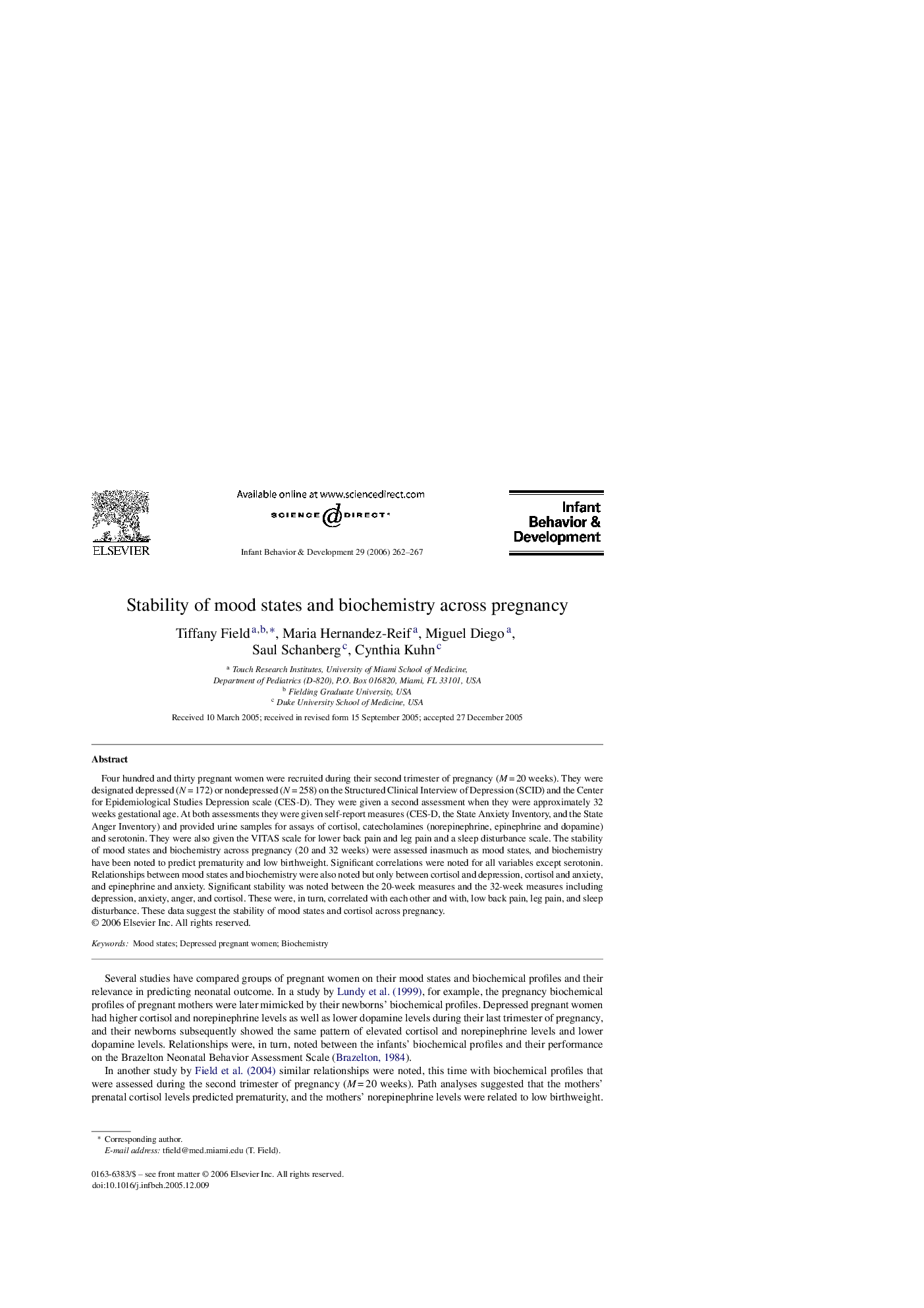| Article ID | Journal | Published Year | Pages | File Type |
|---|---|---|---|---|
| 917707 | Infant Behavior and Development | 2006 | 6 Pages |
Four hundred and thirty pregnant women were recruited during their second trimester of pregnancy (M = 20 weeks). They were designated depressed (N = 172) or nondepressed (N = 258) on the Structured Clinical Interview of Depression (SCID) and the Center for Epidemiological Studies Depression scale (CES-D). They were given a second assessment when they were approximately 32 weeks gestational age. At both assessments they were given self-report measures (CES-D, the State Anxiety Inventory, and the State Anger Inventory) and provided urine samples for assays of cortisol, catecholamines (norepinephrine, epinephrine and dopamine) and serotonin. They were also given the VITAS scale for lower back pain and leg pain and a sleep disturbance scale. The stability of mood states and biochemistry across pregnancy (20 and 32 weeks) were assessed inasmuch as mood states, and biochemistry have been noted to predict prematurity and low birthweight. Significant correlations were noted for all variables except serotonin. Relationships between mood states and biochemistry were also noted but only between cortisol and depression, cortisol and anxiety, and epinephrine and anxiety. Significant stability was noted between the 20-week measures and the 32-week measures including depression, anxiety, anger, and cortisol. These were, in turn, correlated with each other and with, low back pain, leg pain, and sleep disturbance. These data suggest the stability of mood states and cortisol across pregnancy.
